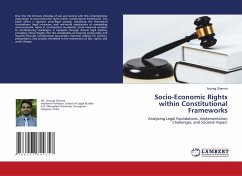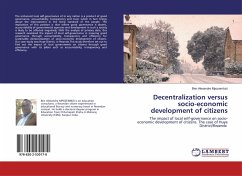It must from the outset be made clear that the concept of judicial activism does not lend itself to an exact definition. It has variously been defined as, a philosophy advocating that judges should interpret the Constitution to reflect contemporary conditions and values; when courts do not confine themselves to reasonable interpretations of law, but instead create law or when courts do not limit their ruling to the dispute before them, but instead establish a new rule to apply broadly to issues not presented in the specific action. At the core of the concept is the notion that in deciding a case judges may, or some advocate must, reform the law if the existing rules or principles appear defective. On such a view, judges should not hesitate to go beyond their traditional role as interpreters of the constitution and laws given to them by others in order to assume a role as independent policy makers or independent "trustees" on behalf of society. The array of existing disparate, even contradictory, ways of defining the concept has made its meaning increasingly unclear.
Bitte wählen Sie Ihr Anliegen aus.
Rechnungen
Retourenschein anfordern
Bestellstatus
Storno








